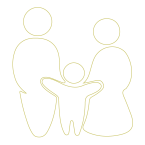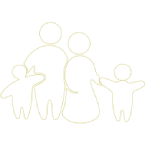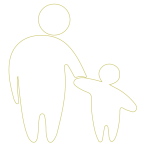The Difference Between Pre-K and Preschool — and Why Early Learning Matters
At first glance, preschool and Pre-K (pre-kindergarten) might seem like the same concept just referred to interchangeably. After all, both take place before kindergarten and focus on helping young children learn and grow and typically are attended by the same age range of children. But there are some key differences between the two — and understanding those differences can help parents make the best choice for their child’s early education journey.
Even more important: both preschool and Pre-K play a powerful role in a child’s emotional, social, and cognitive development. These early experiences lay the foundation for a lifetime of learning, curiosity, and confidence.
What’s the Difference Between Preschool and Pre-K?
Preschool generally refers to early childhood education programs for children ages 2 to 4. The focus is often on play, exploration, and social interaction — helping children begin to build routines, friendships, and confidence outside the home.
Pre-K, short for pre-kindergarten, is typically designed for 4- and 5-year-olds in the year before kindergarten. A Pre-K curriculum usually includes more structured activities and pre-k learning objectives that emphasize school readiness and kindergarten preparation.
In other words:
- Preschool helps children explore and develop through play.
- Pre-K builds upon that foundation with more focused experiences that prepare them for the next big step — kindergarten.
What Is Learned in Pre-K and Preschool?
Both preschool and Pre-K are rooted in a strong early childhood curriculum that encourages growth in all areas — cognitive, physical, social, and emotional. Developing these areas early truly will help shape any child for the years of schooling ahead. It will help with the transition from part time school to full day kindergarten, it will help establish routine and help with any fears of being away from their everyday caregivers and use to new people.
Here’s what children typically experience and develop in these programs:
- Early literacy and pre-reading skills — letter recognition and expanding vocabulary through storytelling and songs.
- Learning letters and learning numbers, counting objects and exploring number recognition.
- Pre-kindergarten skills and pre-k academics —guided lessons that build toward more structured learning in kindergarten.
- Fine motor skills — strengthening small hand muscles through cutting, drawing, and building activities that prepare them for writing.
- Social development — learning how to share, cooperate, and work with others.
- Emotional regulation — understanding feelings, expressing them appropriately, and developing empathy for others.
- Problem-solving skills — thinking creatively to find solutions, ask questions, and explore cause and effect.
- Classroom routine — learning to follow directions, take turns, and transition smoothly between activities — all vital for kindergarten success.
By the end of Pre-K, most children have mastered essential pre-kindergarten skills and are confident, curious, and ready to thrive in the classroom. A high-quality early learning environment gives every child the opportunity to thrive — not only in school, but in life. It fosters curiosity, confidence, and a lifelong love of learning.
If you’re exploring options for your child, consider a program that values play-based learning, nurtures emotional growth, and provides a balance of fun and purposeful pre-k academics. Mosaic Early Learning, part of Center For Family Services may be exactly what you are looking for.
Mosaic offers a nurturing environment where children gain the social development, emotional regulation, and cognitive skills they need to succeed — all through a research-based approach that celebrates the joy of learning.
Schedule a call with a family services advocate to find out how Mosaic Early Learning can help your child advance in all areas of child development and learn about the many ways our early learning community can support your whole family.
Call 856.964.2100 to speak with a family services advocate.
To learn more about Mosaic Early Learning and to see a full list of eligibility requirements to start the enrollment process, visit: Mosaic Early Learning Enrollment (Scroll to the bottom of the page for details.)



